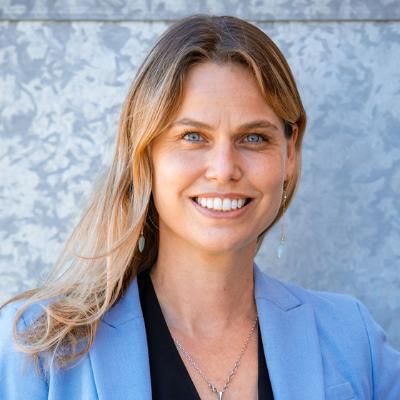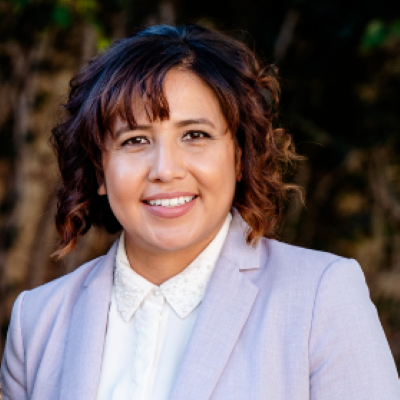From 2021 to 2023, the Rights in Systems Enforced (RISE) Clinic engaged Loyola Law School Students in the direct representation of survivors of violent crime who sought to assert and seek enforcement of their rights during the criminal investigation and prosecution of their offender in state and/or federal cases. This created an opportunity for survivors in Los Angeles County to access confidential legal advice throughout the several stages of the criminal justice process while also receiving support with collateral civil matter. Additionally, the clinic endeavored to increase survivor voices in the movement for criminal justice reform.
THE WORK
The RISE Clinic approached survivor representation through a critical race and gender justice lens, which called for culturally competent and trauma-informed legal counseling to center the interests of its clients. Through this work, the RISE Clinic joined a progressive intersectional, anti-violence movement focused on survivor empowerment against private and state perpetrated harm. By foregrounding survivor voices, whose victimization is often complicated by their own criminality, the RISE Clinic opposed carceral approaches to justice that continue to disproportionately harm, criminalize and incarcerate people of color.
THE COURSE
The RISE Clinic at Loyola Law School became the only victims' rights program specially designed to teach and train law students in representing survivors of violent crime within the criminal justice system. In our approach, we sought to help educate the next generation of legal service providers and expand the body of professionals who will advocate for the rights of crime survivors.
The Clinic enrolled students each semester to practice under the supervision of the RISE Clinic Director, Stephanie Richard. They participated in weekly seminars and supervision to learn about victims' rights and best practices for representing survivors. In addition, they completed an average of 14 hours of legal work each week.
SERVICE TO CRIME VICTIMS
Due to the decline in federal funding to those impacted by crime, the RISE Clinic is unable to continue its teaching program and the services to survivors . We, along with the 14 RISE Programs funded across the country, are deeply saddened by the impact these critical cuts in funding will have on vital services to survivors across the country. However, we hope that our work inspires students and legal professionals to incorporate the specialization of victims' rights in their practice to advocate for the voice of survivors and seek justice that will contribute to their healing and prevent further harm in the community.
Read Impact Report Here.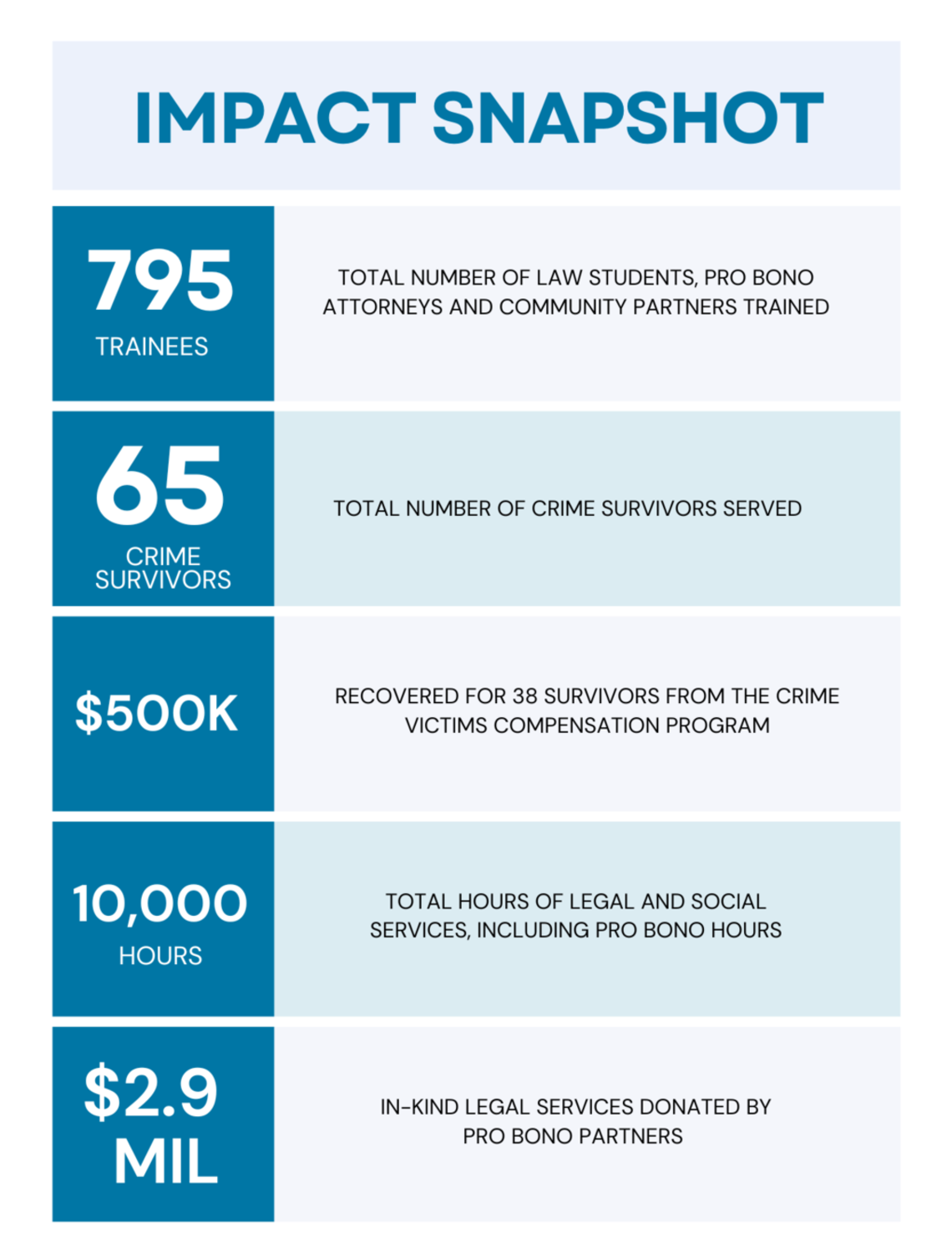
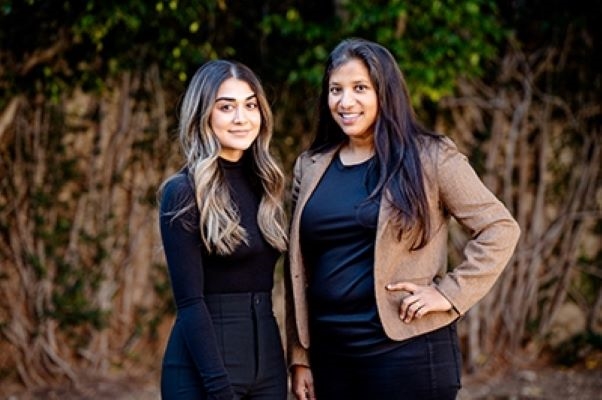
RISE Students Find Success for Survivors of Crime
Christineh Gasparyan and Viveka Ray-Mazumder joined the RISE Clinic during the first semester the program was launched at Loyola Law School. Their participation in the clinic allowed them to engage in legal representation from a critical race and gender lens based in trauma-informed advocacy. During their work, they provided crucial legal support to survivors during their interactions with prosecutors and law enforcement. They also helped clients secure financial compensation through the California Victim Compensation Board.
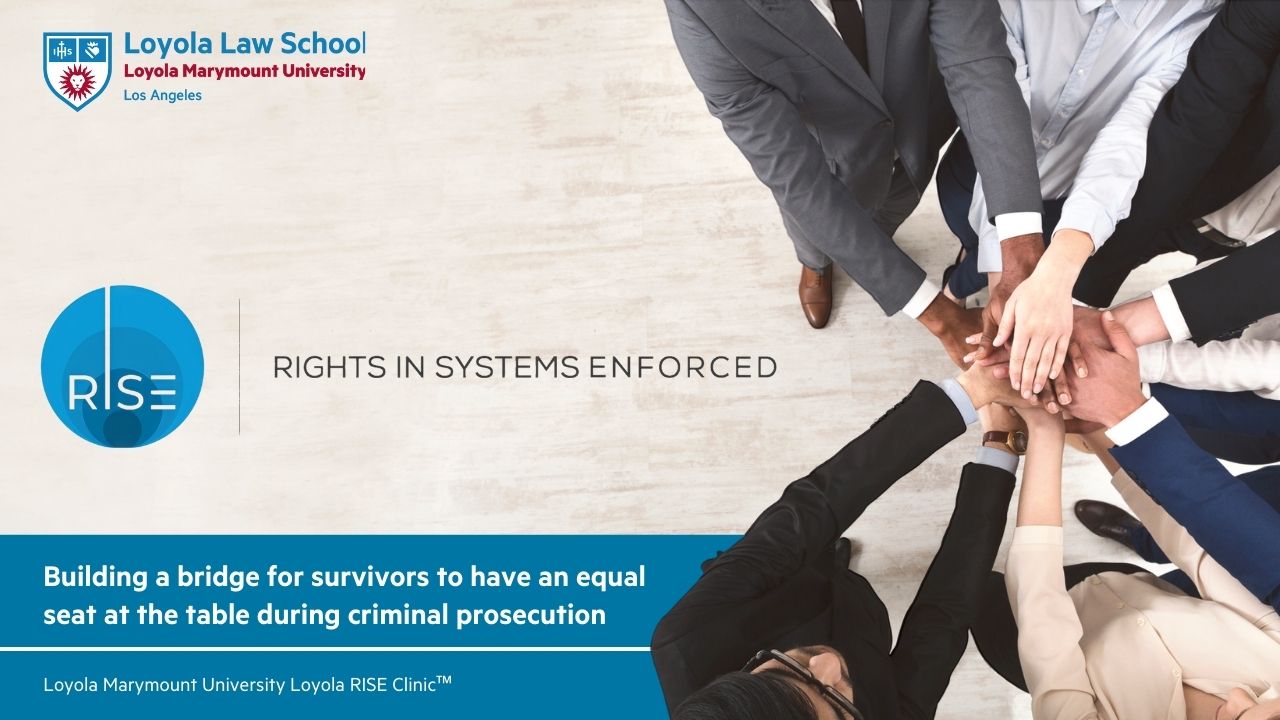
Crime Victims' Rights: An Introduction for Legal Professionals Working with Survivors of Violence
The RISE Clinic designed a comprehensive 8-hour training for attorneys to learn practical skills on how to support survivors of violent crimes access legal systems on their own terms. The training was created for attorneys interested in providing legal representation to survivors navigating the criminal justice system as a result of their victimization. For more information, you can visit our page.
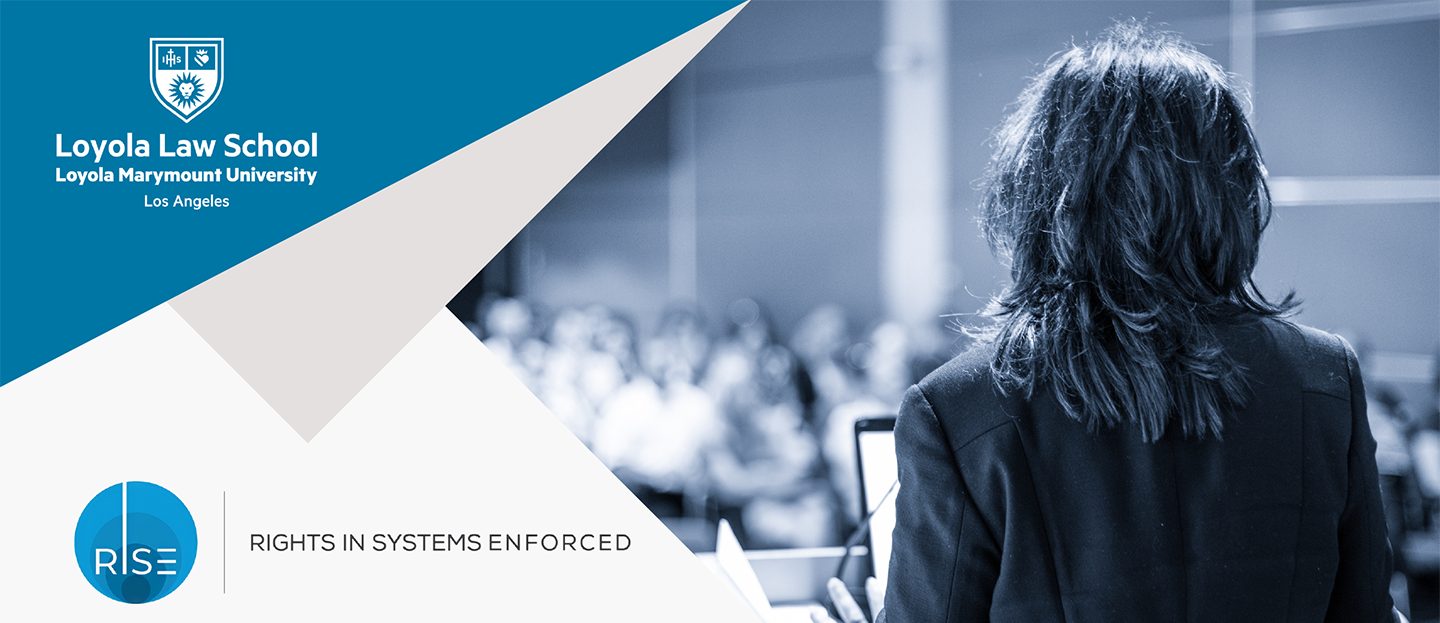
Criminal Justice Reform: Protecting, Enforcing, and Advancing the Rights of Victims
On April 20, 2022, the RISE Clinic invited survivor leaders to sit in panels with state and federal judges, prosecutors, and public defenders to engage in open dialogues about the experience of crime victims navigating the criminal justice system and propose changes that are culturally and socially responsive to everyone. Recordings of the panels are available for view on our page.
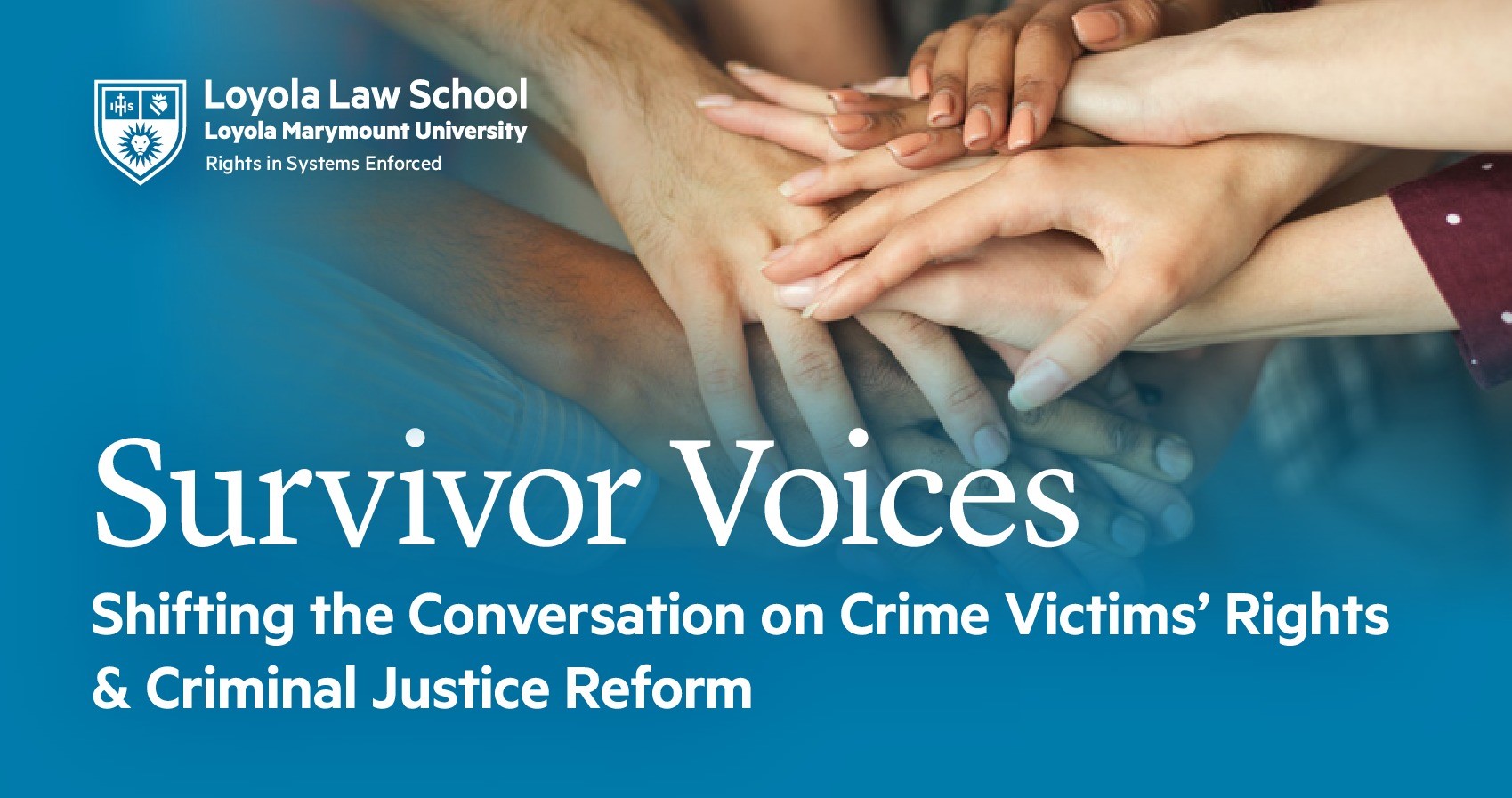
Survivor Voices: Shifting the Conversation on Crime Victims’ Rights & Criminal Justice Reform
On October 21, 2022, RISE invited survivor leaders from diverse backgrounds to participate in a retreat with the goal of identifying recommendations to ensure that crime victims are treated with dignity and respect by the criminal justice system. Recordings of the recommendations made by the survivor leaders during their presentations at the event can be viewed here.
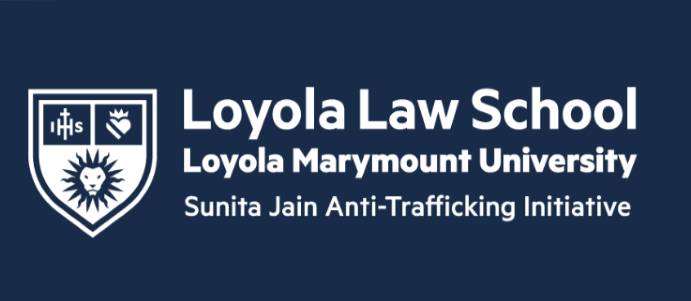
Human Trafficking Forum
On June 30, 2023, the RISE Clinic, in collaboration with the Sunita Jain Anti-Trafficking Initiative at Loyola Law School, gathered representatives from the District Attorney's Office and survivors of human trafficking to discuss bail reform and pre-trial conditions and how this impacts survivor safety. During this event, survivors leaders had the opportunity to speak about their experiences and share their recommendations on how representatives from LA DA's Office can provide support to crime victims. Read more here.
Get in Touch
Rights in Systems Enforced (RISE) Clinic
919 Albany St.
Los Angeles, CA 90015
Loyola RISE materials were produced under 2020-V3-GX-K022, awarded by the Office for Victims of Crime, Office of Justice Programs, U.S. Department of Justice. The opinions, findings, and conclusions or recommendations expressed in these materials are those of the contributors and do not necessarily represent the official position or policies of the U.S. Department of Justice.
RISE is a national project made possible with funding from the Office for Victims of Crime U.S. Department of Justice. RISE aims to provide crime victims with access to no cost legal services to aid enforcement of their rights. For more information about this national rights enforcement initiative, visit the RISE Project website at https://tinyurl.com/ncvli-RISE.
